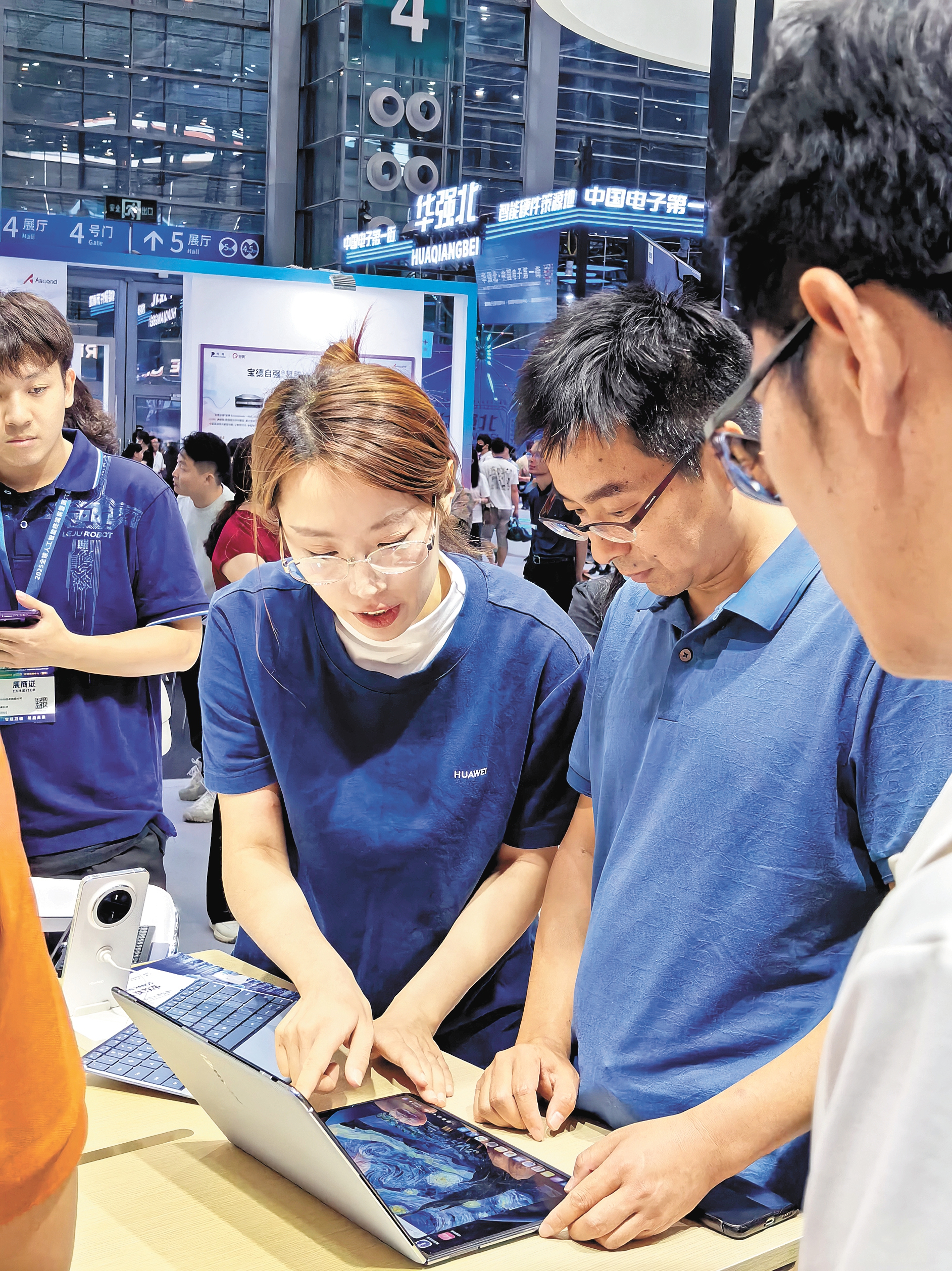Huawei smart devices stand out at expo
Writer: Windy Shao | Editor: Lin Qiuying | From: Original | Updated: 2025-05-27
Shenzhen-based tech giant Huawei showcased its latest HarmonyOS-powered laptops at the three-day 2025 Global AI Device Expo that concluded Saturday in Futian District.
The Huawei MateBook Fold, the world’s lightest and thinnest commercial foldable laptop, features an oversized 18-inch foldable screen housed within a sleek frame that folds to the size of a 13-inch laptop. It measures just 7.3 mm thick when open — thinner than the iPhone 16’s 7.8 mm depth — and weighs only 1.16 kg.
A versatile built-in kickstand allows users to adjust the screen at multiple angles, and its premium silicone-coated leather exterior features refined design details.
Powered by Huawei’s own operating system, the MateBook Fold facilitates seamless interaction between two virtual displays, allowing users to drag windows with a tap. AI features can assist users with meeting notes and slide generation.

A staffer helps a visitor try a Huawei MateBook Pro at the company’s booth at 2025 Global AI Device Expo in Futian District on Saturday. Courtesy of Huawei
The MateBook Pro, meanwhile, offers powerful performance, efficient heat dissipation, and long battery life in a lightweight 970-gram chassis. It comes with a Smart Key to activate the AI mode.
Huawei’s booth also featured classic products like the HUAWEI nova 14 series, Mate 70 series, Pura X, and Mate X6.
Honor, another brand previously affiliated with Huawei, announced its Alpha Plan in March at MWC Barcelona. The three-stage plan aims to transform the company into a leading, open-device ecosystem company centered around AI by the end of the decade. It showcased products from its ecological partners at the AI device expo, including the prototype X Square Robot that incorporates a large language model.
Another highlight at the expo was the world’s first full-modal edge-side large model —ModelBest’s MiniCPM-o 2.6 — which can handle images, video, text, and audio as inputs. This is similar to how humans perceive the world through multiple senses.
At the booth representing Huaqiangbei, a block known for its electronics market, a variety of AI-powered products emerged as crowd favorites, including AI guitars, AI translation devices, AR glasses, robot dogs, AI companion pets, and educational robots.
Robot innovators PaXini and SenseTime introduced multi-dimensional tactile humanoid robots and chess-playing robots. Other companies’ demonstrations included humanoid robots walking, dancing, and carrying objects.
“The visitor turnout greatly exceeded our expectations. This fills us with confidence about the industry’s future,” a SenseTime staff member told Shenzhen Daily.
The expo witnessed nearly 1,000 project procurement intentions established, with contracts worth 3 billion yuan (US$418 million), organizers said.
The event welcomed close to 60,000 visitors representing 66 countries and regions, alongside nearly 100 buyer groups.
Hundreds of industry experts, scholars, and entrepreneurs gathered at 20 high-profile forums to discuss the full AI industry chain from multiple perspectives, exploring AI’s evolving role in the global technological landscape. The event established itself as a pivotal platform for advancing international collaboration and exchange within the AI sector.